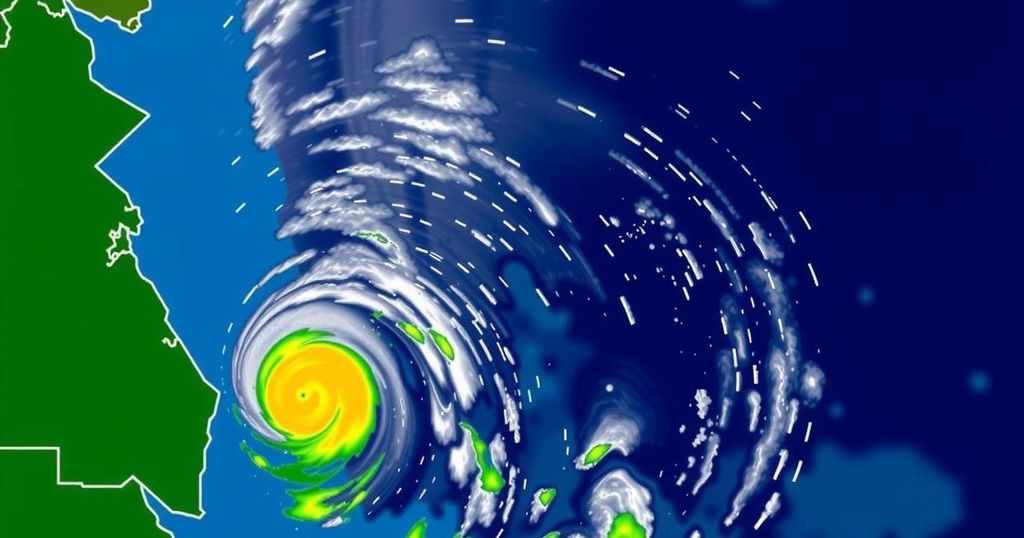2024 Atlantic Hurricane Season: A Devastating Impact on North Carolina

The 2024 Atlantic hurricane season ended with significant impacts in North Carolina, featuring 18 named storms and 11 hurricanes, notably Hurricane Helene, which caused catastrophic damage exceeding $58 billion. NOAA’s advancements in forecasting and monitoring were critical in addressing these storm challenges, marking a year of substantial hurricane activity and research progress.
The 2024 Atlantic hurricane season concluded with a notable legacy in North Carolina, marked by 18 named storms, including 11 hurricanes, and 5 that reached major hurricane status. Despite initial inactivity, the season witnessed significant events, particularly the devastating impact of Hurricane Helene, which terrorized the Gulf Coast before wreaking havoc across North Carolina, culminating in catastrophic flooding and exceeding historical damage estimates. The season highlighted advancements in forecasting and hurricane monitoring, featuring unprecedented developments in NOAA’s prediction methodologies, and on-the-ground efforts to address storm-related challenges in the Outer Banks.
Although the season began with a lull, it intensified notably over the later summer months, with various systems affecting local conditions, including remnants of Tropical Storm Debby. The Outer Banks experienced significant rainfall and coastal erosion due to distant hurricanes, while Hurricane Helene resulted in profound destruction across the state, causing damage estimates nearing $58 billion and leading to significant loss of life. NOAA’s continued enhancements in forecasting accuracy played a vital role in preparing communities for these disasters.
Post-hurricane assessments underscored the importance of the Hurricane Hunters’ data collection missions. They conducted 392 hours of missions collecting critical atmospheric data and deploying scientific instruments to improve forecasting capabilities. Moreover, engagement with new technology and methodologies for hurricane monitoring proved crucial in addressing the challenges posed during this tumultuous season, reflecting NOAA’s dedication to safeguarding lives and property against climate-related dangers.
In summary, the above-average hurricane season of 2024, culminating in Hurricane Helene’s unprecedented impact, serves as a reminder of the increasing intensity of tropical storms and the essential nature of effective forecasting and community preparedness. It highlights the necessity for continuous advancements in hurricane research, warning systems, and emergency management to protect vulnerable regions.
The Atlantic hurricane season, which officially runs from June 1 to November 30, is characterized by varying patterns of storm activity influenced by atmospheric and oceanic conditions. In 2024, this season closed with statistics revealing a higher-than-average occurrence of named storms, further emphasizing the growing trend of increased storm intensity and frequency. Particularly significant was Hurricane Helene, which marked a critical moment in hurricane history due to its unprecedented impact on North Carolina. The advancements made by NOAA in modeling and forecasting are crucial as communities face the multifaceted threats posed by hurricanes and tropical storms in an evolving climate.
The 2024 hurricane season serves as a stark reminder of the volatile nature of tropical weather patterns and reinforces the pivotal role of science in disaster preparedness and management. With improvements in storm prediction and ongoing research into hurricane dynamics, NOAA’s initiatives are more vital than ever in safeguarding communities vulnerable to tropical disturbances. The lessons learned from this season will drive further advancements in protecting human lives and infrastructure as climate change continues to reshape our hurricane landscape.
Original Source: islandfreepress.org








